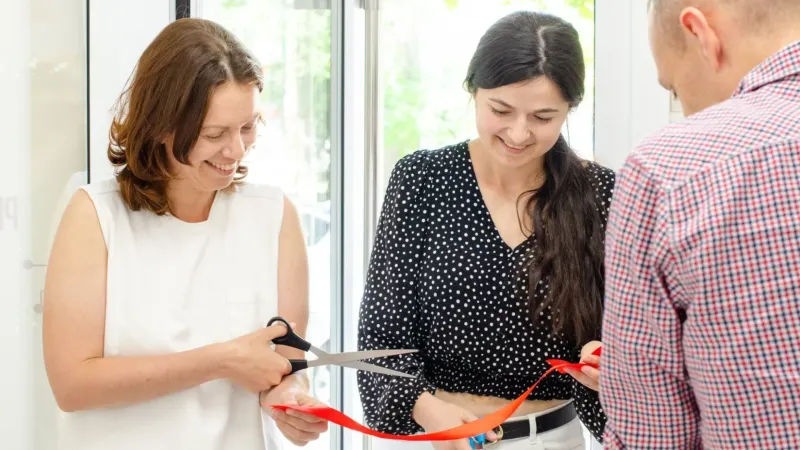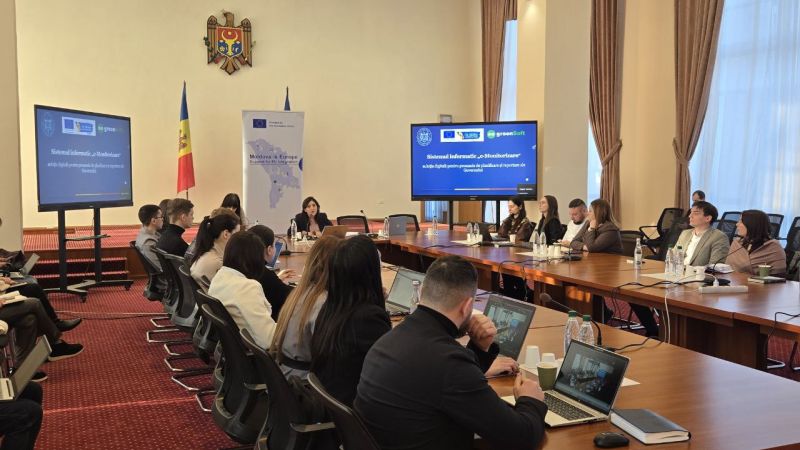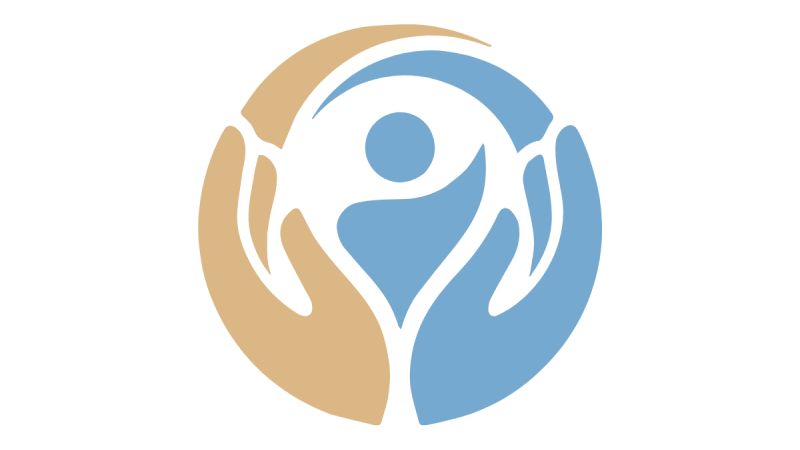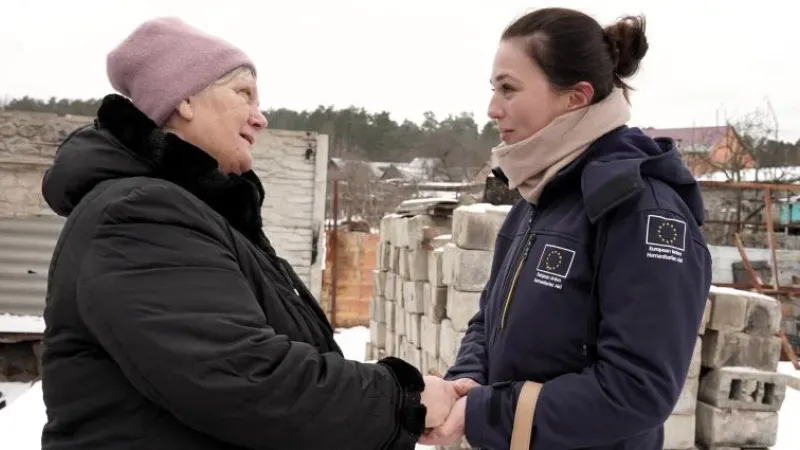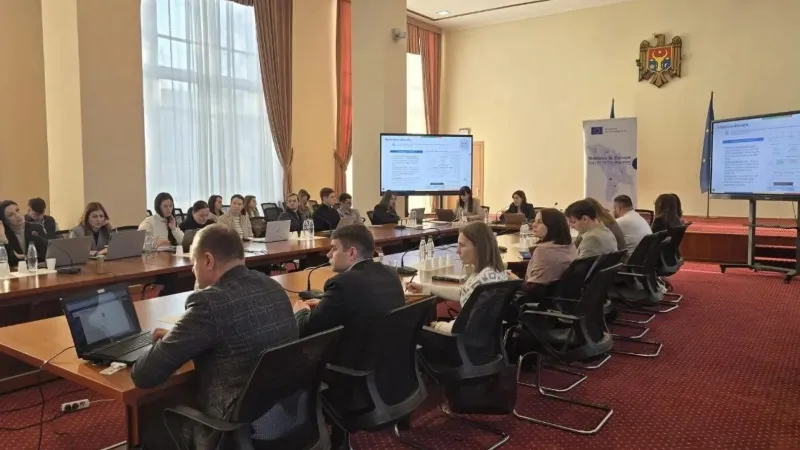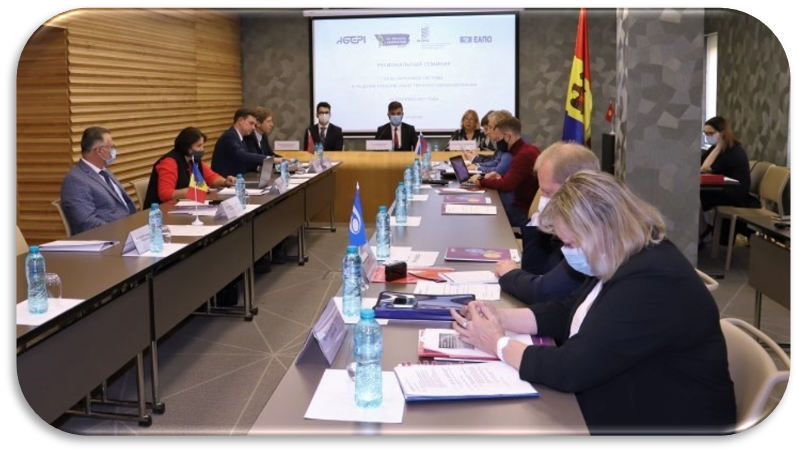
Rolul sistemului de brevete în abordarea provocărilor din domeniul sănătății publice discutat în cadrul unui eveniment regional
La 15 septembrie 2021 a fost organizat un atelier regional dedicat rolului sistemului de brevete în abordarea provocărilor din domeniul sănătății publice. În cadrul atelierului au fost discutate Legislația privind brevetele și sănătatea publică: cadrul internațional de reglementare și mecanismele de implementare, licențierea obligatorie și accesul la medicamente, evoluțiile recente ale legislației privind licențierea obligatorie la nivel național și inițiativele legislative în derulare.
Atelierul a fost organizat cu sprijinul Proiectului UE „Sprijin pentru dialogul politic structurat, coordonarea implementării Acordului de asociere și îmbunătățirea procesului de aproximare legală în Republica Moldova”, de către Agenția de Stat pentru Proprietatea Intelectuală a Republicii Moldova (AGEPI), Organizația Mondială a Proprietății Intelectuale (OMPI) și Oficiul Eurasiatic de Brevete (OEAB).
În contextul pandemiei COVID-19, evenimentul s-a desfășurat în format hibrid (online și cu prezența fizică a unei părți dintre participanți) și a reunit peste 70 de participanți, reprezentând birouri de proprietate intelectuală, precum și alte organizații responsabile de proprietate intelectuală și sănătate publică din Armenia, Belarus, Kârgâzstan, Republica Moldova, Federația Rusă, Tadjikistan, Ucraina și Uzbekistan.
Primoz Vehar, Lider de Echipă al proiectului finanțat de UE care sprijină implementarea Acordului de Asociere, a menționat că proiectul sprijină Republica Moldova în eforturile sale de implementare a Acordului de Asociere cu Uniunea Europeană și de apropiere treptată de legislația Uniunii Europene. În același timp, domnul Vehar a subliniat că proprietatea intelectuală este unul dintre subiectele cheie prevăzute în Acordul de Asociere și, prin urmare, echipa proiectului lucrează îndeaproape cu partenerii săi naționali din țară, inclusiv cu Agenția de Stat pentru Proprietatea Intelectuală (AGEPI), pe diverse aspecte ale proprietății intelectuale, cu accent deosebit pe modificările legislative aferente.
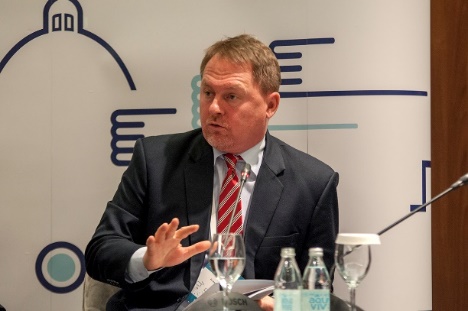
| „În timpul pandemiei Covid-19, legătura dintre dreptul brevetelor și sănătatea publică a devenit foarte importantă, mai ales în ceea ce privește accesibilitatea la medicamente, drepturile statelor de a interveni cu măsuri obligatorii. Mă bucur că acest proiect finanțat de UE a ajutat la organizarea acestui eveniment și oferă sprijin autorităților din Republica Moldova, în special AGEPI, și anume în ceea ce privește modificările aferente la legislația privind brevetele, în domeniul licențelor obligatorii, care sperăm că vor fi introduse și în Republica Moldova.” Primoz Vehar, Lider de Echipă al proiectului finanțat de UE „Sprijin pentru dialogul politic structurat, coordonarea implementării Acordului de asociere și îmbunătățirea procesului de aproximare legală în Republica Moldova” |
Totodată, directorul general al AGEPI, domnul Eugeniu Rusu, a evidențiat că tematica conferinței este nu doar foarte potrivită, dar și foarte bine ancorată în circumstanțele actuale, exprimându-și speranța că atelierul de lucru va facilita schimbul de experiență în acest domeniu important.
Saule Tlevlessova, președinta Biroului Eurasiatic de Brevete (EAPO) al Organizației Eurasiatice de Brevete, a subliniat că pandemia a impus diverse provocări în domeniul proprietății intelectuale din cauza vitezei de înregistrare a vaccinurilor și a produselor farmaceutice, de aceea schimbul de experiență între organizațiile de proprietate intelectuală este extrem de important.
Agenția de Stat pentru Proprietatea Intelectuală a informat participanții despre cadrul legal național existent în domeniul brevetelor de invenție, prezentând, totodată, proiectul de lege elaborat de AGEPI cu suportul Uniunii Europene, pentru a asigura armonizarea în conformitate cu standardele și practicile europene a cadrului legal de licențiere, în special a celor legate de acordarea brevetelor în domeniul sănătății.
Doamna Tomoko Miyamoto, șefa Secției de Drept al Brevetelor și Tratatelor din cadrul Organizației Mondiale a Proprietății Intelectuale (OMPI), a prezentat particularitățile dreptului brevetelor în contextul inovării și al accesului la tehnologiile medicale, cadrul internațional de reglementare și mecanismele de punere în aplicare a dreptului brevetelor în domeniul sănătății publice.
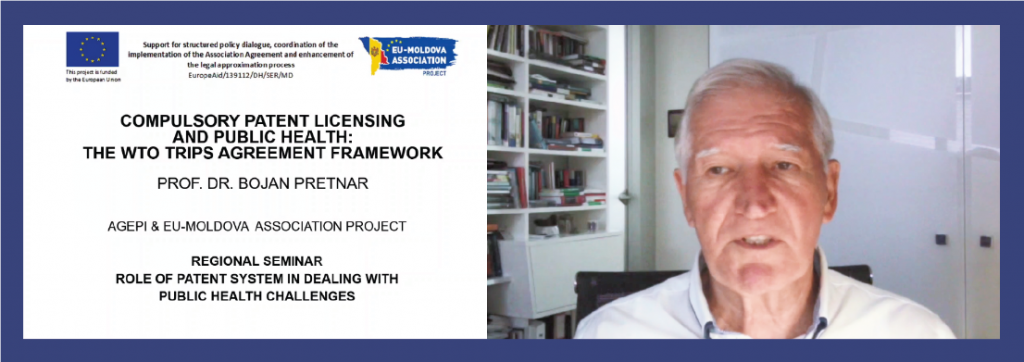
Totodată, expertul UE Bojan Pretnar, fost prim director al Oficiului sloven de Proprietate Intelectuală și fost înalt funcționar OMPI, a vorbit despre licențierea obligatorie a brevetelor în cadrul sănătății publice, așa cum este prevăzut în articolul 31bis recent adăugat la Acordul OMC privind aspectele drepturilor de proprietate intelectuală legate de comerț (Acordul TRIPS). Acest articol face posibil ca sistemul de acordare a licențelor obligatorii în materie de sănătate publică să fie disponibil și pentru țările care nu dispun de o industrie farmaceutică națională capabilă să producă medicamentele licențiate relevante. Domnul Pretnar a menționat, de asemenea, importanța licenței nevoluntară de uz guvernamental pentru țările care nu sunt membre ale OMC – cu condiția ca aceste țări să dispună de o industrie farmaceutică internă capabilă să producă medicamentele relevante în cadrul acestui tip de licență obligatorie.
Participanții au apreciat utilitatea atelierului regional și și-au exprimat interesul și dorința de a continua discuțiile în cadrul unor evenimente ulterioare pentru a aborda alte aspecte legate de proprietatea intelectuală.
Proiectul finanțat de UE „Sprijin pentru dialogul politic structurat, coordonarea implementării Acordului de asociere și îmbunătățirea procesului de aproximare legală în Republica Moldova” are drept scop creșterea capacităților Guvernului Republicii Moldova și ale altor instituții naționale cheie în implementarea Acordului de Asociere UE-Republica Moldova. Activitatea proiectului este structurată în 4 componente care contribuie la consolidarea în continuare a dialogului politic structurat cu societatea civilă, la îmbunătățirea mecanismelor de elaborare a politicilor pentru bugetarea adecvată a documentelor strategice, la sprijinirea procesului de aproximare legală prin furnizarea de expertiză tehnică și consolidarea capacităților, precum și la modernizarea sistemelor informatice din administrația publică, sprijinind punerea în aplicare a Acordului de asociere. Proiectul este implementat de un consorțiu condus de DAI – Human Dynamics pentru o perioadă de implementare de cinci ani.

